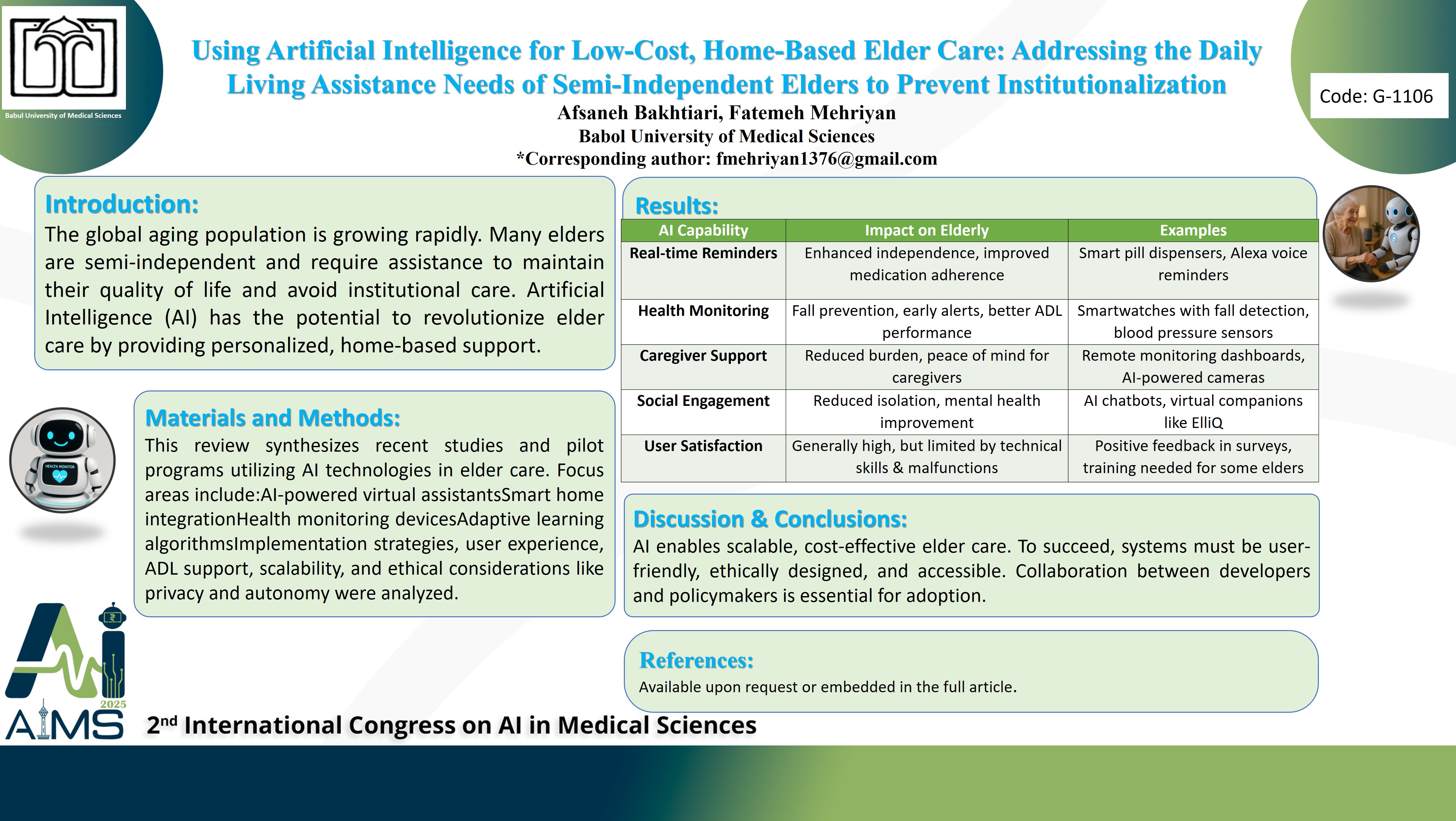استفاده از هوش مصنوعی برای مراقبت از سالمندان در منزل با هزینه کم: پاسخگویی به نیازهای کمک به زندگی روزمره سالمندان نیمهمستقل به منظور جلوگیری از نهادینه شدن
کد: G-1106
نویسندگان: Afsaneh Bakhtiari *, Fatemeh Mehriyan ℗
زمان بندی: زمان بندی نشده!
برچسب: سیستم های تصمیم یار بالینی
دانلود: دانلود پوستر
خلاصه مقاله:
خلاصه مقاله
Background and aims: The global aging population necessitates innovative solutions to support semi-independent elders in maintaining independence and quality of life while preventing institutionalization. Artificial intelligence (AI) offers transformative potential for delivering low-cost, home-based care tailored to the unique needs of this demographic. This review explores the capabilities of AI in addressing the daily living assistance requirements of semi-independent elders and highlights its potential role in reducing institutional care reliance. Method: This article synthesizes findings from recent studies and pilot programs employing AI-driven technologies for elder care. Key focus areas include AI-powered virtual assistants, smart home integrations, health monitoring devices, and adaptive learning algorithms. The review evaluates implementation strategies, effectiveness in assisting with activities of daily living (ADLs), and user acceptance. Practical considerations such as cost-effectiveness, scalability, and the ethical implications of data privacy and autonomy are discussed. Results: Evidence suggests that AI technologies enhance elder independence by providing real-time assistance, timely reminders, and remote monitoring, significantly improving ADL performance and reducing caregiver burden. Studies report high user satisfaction rates, although challenges persist regarding usability for technologically unskilled elders and technical malfunctions. Notable examples include AI systems improving medication adherence, fall prevention, and social engagement. Conclusion: AI offers a promising solution for low-cost, home-based elder care, fostering aging-in-place and preventing premature institutionalization. To maximize benefits, future implementations must prioritize user-friendly design, ensure equitable access, and address ethical concerns. Policymakers and developers should collaborate to create robust frameworks supporting widespread adoption.
کلمات کلیدی
Smart Home Technology, Elderly Care, Aging-in-Place
